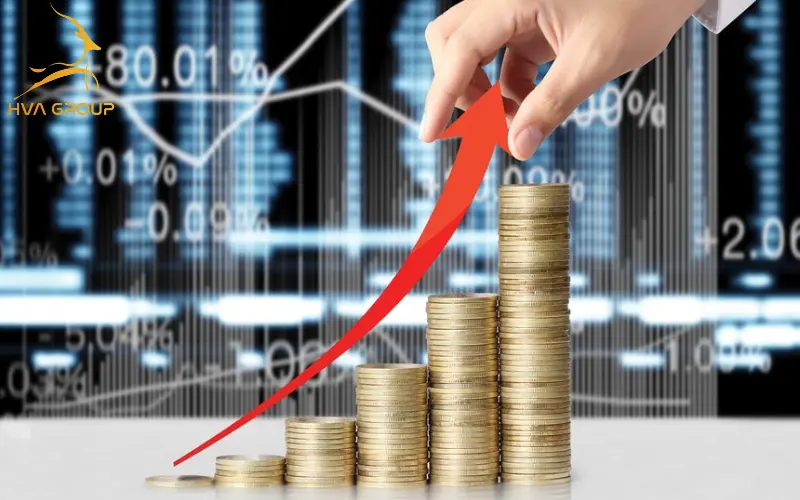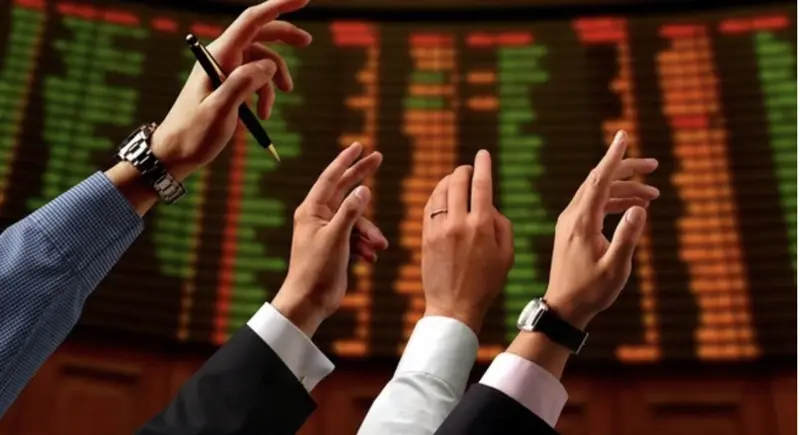
The cooling exchange rate affects the stock market. Yuanta Securities believes that this is a favorable time for the VN-Index to surpass 1,300 points.
VN-Index was knocked off the 1,300 mark many times.
The exchange rate has always been considered the “bogeyman” of the stock market during the recent period when the strong increase of the USD affected the policies of the State Bank and caused pressure to withdraw capital from Vietnam. The VN-Index was knocked out of the 1,300 mark many times despite the strong economic recovery in the country, high growth in corporate profits, and falling interest rates supporting the flow of money into stocks…
However, concerns about exchange rates have been eased as the USD has cooled down significantly, falling below 25,000 VND/USD in today's session.
This morning (August 28), the central exchange rate is listed at 24,212 VND/USD, down 12 VND compared to the previous session. With the applied amplitude of +/-5%, today's ceiling exchange rate is 25,422 VND/USD and the floor exchange rate is 23,001 VND/USD.
How does the cooling exchange rate affect the stock market?
Previously, the DXY index witnessed a sharp decline in July and early August due to weaker-than-expected US economic data, in which the CPI increased by 0.2% in July 2024 compared to a decrease of 0.1% in June 2024, in line with forecasts, and increased by 2.9% over the same period. The Fed's almost certain interest rate cut in September caused the exchange rate to break through 25,000 VND/USD.
Commenting on how the cooling exchange rate affects the stock market, Mr. Nguyen The Minh, Director of Individual Customer Research at Yuanta Securities, said that this is a favorable time for the VN-Index to surpass 1,300 points.
If in the past two years, investors were afraid of selling off when the VN-Index reached 1,300 points, the context has changed a lot in this period. First is the story of exchange rates, this is the biggest risk of the stock market since the beginning of the year.
During the period of March, June and July, the exchange rate increased, at that time each session foreign investors net sold more than 1,000 billion, however, now the exchange rate is below 25,000 billion, the net selling volume of foreign investors has also decreased significantly. This means that the exchange rate risk has decreased significantly compared to March and June.

VN-Index medium-term trend is positive
The second is the real estate group, which has been the group that has caused the most damage to the market in the past period. In March-June, the stock prices of this group went down, causing a negative impact on the general market. However, in the current period, the VN-Index representing the real estate group has surpassed the 100-day moving average, showing a more positive mid-term trend, and is expected to not "harm" the market like in March and June.
Third is about the valuation of the two groups of banks and securities. In March-June, the P/B of both groups was high when the VN-Index reached 1,300 points, but at this time, the P/B is below 2, so there is still a lot of room for these two groups to increase.
A notable point, Mr. Minh expects the upcoming VNDiamond index to change its set of rules such as adjusting liquidity, limiting foreign ownership ratio... This change will help some stocks to be added such as MWG, attracting foreign capital to return...
Some other industries also benefit when the exchange rate cools down, such as import, transportation, retail, and food production. The export group is facing difficulties in the short term, but is not worried about this situation lasting long, waiting for positive signals from new export markets to recover and grow.
In a recent letter to investors, Mr. Petri Deryng, fund manager of Pyn Elite Fund from Finland, expressed his expectation that the VN-Index could surpass 1,300 points by the end of this year.
Source: VnEconomy









